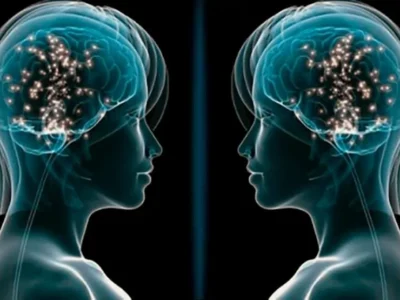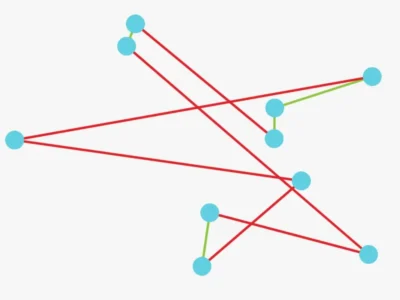The team from Psicología Amorebieta explains in this article the cognitive consequences of Fetal Alcohol Spectrum Disorder (FASD) and its intervention with NeuronUP.
Definition: What is Fetal Alcohol Spectrum Disorder?
Fetal Alcohol Spectrum Disorder (FASD) comprises a set of disorders caused by prenatal exposure to alcohol. This exposure occurs through the mother’s consumption of alcohol during pregnancy. In this way, alcohol reaches the embryo’s or fetus’s bloodstream via the umbilical cord.
Consequences of FASD for the fetus
As expected, this exposure to alcohol is not harmless for the future baby. Alcohol can lead to a reduction in blood flow in the placenta and, therefore, the appearance of ischemia, preventing the fetus from receiving the oxygen and nutrients necessary for its proper development.
In addition, alcohol itself, as a teratogenic agent, can cause alterations both in the structure and in the functioning of different systems and organs, with the fetal brain specifically being the main target of alcohol due to its higher metabolic demand.
Consequently, alcohol can cause alterations at the organic, sensory, motor, cognitive, emotional and/or behavioral levels. This will inevitably have a negative impact on different areas of the affected person’s life, for example physical and psychological health, personal autonomy, academics, work, social life, family, etc. In addition, FASD is a chronic disorder and, as such, will accompany the affected person throughout their life regardless of the developmental stage they are in.
Fetal Alcohol Spectrum Disorder today
Currently, it is estimated that approximately between 2% and 5% of the world’s population has FASD. This implies that 9 or 10 out of every 10,000 babies are born with this disorder worldwide. In Spain this figure may be somewhat lower, with 6 to 10 children out of every 10,000 being born with FASD. However, in adoption cases it is estimated that up to 50% of children from China, South America and Eastern Europe could suffer from this condition.
Despite this, it is believed that all these figures may not represent the true incidence of the disorder. This is because the stigma surrounding alcohol consumption during pregnancy and the lack of training among professionals regarding FASD, among other factors, could be leading to it being an underdiagnosed disorder.
The neurobiological bases of Fetal Alcohol Spectrum Disorder
The amount of alcohol consumed, the gestational timing at which that consumption occurs and the period during which the developing brain is exposed to the effects of alcohol will determine how the different brain structures are affected and, consequently, the severity of the associated symptoms.
Areas affected in Fetal Alcohol Spectrum Disorder
Today, thanks to major advances in neuroimaging techniques, the main brain areas and structures that are typically damaged in FASD have been identified. These areas are:
Frontal lobe
This brain area is responsible for higher cognitive functions. That is, those functions that in some way differentiate us from other species. These functions include executive functions, such as reasoning, planning ability, problem solving, cognitive flexibility (the ability to adapt to changes or seek different solutions to the same problem), abstract thinking and adaptation to the environment. Language and other functions such as motor control are also governed by this lobe.
In general, it could be said that most of the neuronal circuits of the cerebral cortex and, therefore, of the frontal lobe develop during the third trimester of gestation. Thus, if alcohol exposure occurs during this last trimester, the different functions described are more likely to be affected than during other periods.
Parietal lobe
This lobe plays an important role in spatial awareness (awareness of our position relative to the environment and surrounding objects), motor coordination in relation to space and mathematical ability. The development of this lobe, like that of the frontal lobe, usually occurs in the third trimester of gestation, so if alcohol exposure occurs during this last trimester, the functions described are more likely to be affected than during other periods.
Corpus callosum
One of the structures that most frequently presents malformations in people with FASD is the corpus callosum. The most common malformations usually include a reduction in its thickness, an alteration in its shape or, in the most extreme cases, agenesis (total absence) of the structure. It is the largest bundle of interhemispheric fibers in the human brain, connecting brain areas of both cerebral hemispheres. This structure is involved in temporal tasks (tasks that involve time management/estimation), motor and coordination tasks (the ability to perform efficient movements precisely, quickly and orderly).
Hippocampus
This is the brain structure most responsible for memory processes such as learning and memory. It is also important to note that other structures such as the cerebral cortex also participate in these processes. Alcohol exposure before or during the third trimester of gestation can cause damage to this structure and, therefore, to the ability to learn new information and later recall it.
Amygdala
This small almond-sized structure is responsible for regulating emotional reactions (fear) and behavioral responses (fight or flight) that we present in relation to the environment. This brain structure is often smaller than expected due to neuronal death induced by alcohol exposure during pregnancy. Therefore, people with FASD have difficulties regulating emotions and often present high anxiety.
Caudate nucleus
This structure is part of the basal ganglia and plays a fundamental role in motor functioning. In addition, it is also involved in cognitive functioning, such as executive functions (planning and carrying out tasks) and motivation.
Nucleus accumbens
Linked to reward, pleasure, laughter, addiction, aggression and fear. Thanks to this brain structure we are able to learn from positive or negative experiences and events. People with FASD often have difficulties learning from experiences and their consequences. Therefore, reprimands, punishments or rewards usually do not have much effect in modifying or reinforcing their behaviors.
Cerebellum
This brain structure is involved both in motor functioning (balance and coordination) and in cognitive processing (attention, verbal language, memory processes, executive functioning, etc.). It is a structure that, like the cerebral cortex, finishes developing in the postnatal period, so if the fetus is exposed to alcohol at the end of the third trimester, the functions it handles may be affected.

Subscribe
to our
Newsletter
Most common symptoms in FASD
As a consequence of the neurological damage described above, FASD is characterized by the presence of different cognitive, emotional and/or behavioral symptoms:
Cognitive symptoms
Among the cognitive symptoms that can be observed in FASD are difficulties in overall intellectual performance, so that sometimes there may be a gap between the person’s chronological age and their mental age. However, it is not uncommon to observe a heterogeneous cognitive profile, involving impairment of some cognitive functions while others are preserved. In fact, it is common to find language development difficulties, with a marked discrepancy between the functioning of verbal and nonverbal abilities. In addition, FASD can also present with specific learning difficulties in reading, writing or mathematics.
Other more general functions that may also be affected are:
- Attentional capacity
- Speed of information processing
- Learning and memory
- Executive functioning
- Cognitive flexibility
- Verbal and visuospatial reasoning
- Decision making
- Anticipation of the consequences of one’s own actions
- Following instructions
- Generalization of learning to different contexts
- Understanding of abstract concepts
- Social cognition
- Hyper-/hyposensitivities to visual, auditory and tactile stimuli.
Emotional symptoms
At an affective level, self-esteem problems are common, as well as the presence of symptoms or even disorders of anxiety and depression. In addition, it is not unusual to find difficulties in understanding, identifying and self-regulating one’s own emotions, which would include low frustration tolerance and may result in inappropriate behaviors (impulsive or aggressive) as a way of expressing their distress.
During childhood this can lead to frequent tantrums and during adolescence or adulthood to frequent anger and arguments. These are usually associated with a high level of resentment and a tendency to blame and hold others responsible for different situations that may have occurred or for one’s own behavior.
Behavioral symptoms
On the other hand, at a behavioral level, in some cases a delay in psychomotor development may be observed, which can affect both gross and fine motor skills. Another behavioral symptom commonly associated with FASD is symptoms of hyperactivity and impulsivity, which is why children with FASD are sometimes mistakenly diagnosed with Attention-Deficit/Hyperactivity Disorder (ADHD). Likewise, cognitive and therefore behavioral flexibility are often affected, leading to a limited ability to adapt to changes or unforeseen events and the need to follow extremely rigid routines.
In addition, as can be easily predicted, given the various difficulties they may present at a cognitive level, limitations in adaptive or autonomous functioning are also common. There may also be difficulties in complying with rules and regulations, to a greater or lesser extent, with legal problems being more usual in people with FASD than in people without this condition. In addition, there is a higher probability of psychoactive substance use.
Finally, at a social level difficulties in interacting with others can also be observed due to poor development of social skills, as well as possible cognitive immaturity or difficulties in emotional management. All of this can lead to various consequences such as the person losing interest in social relationships and tending toward isolation. Also, being unable to maintain long-term relationships or unable to identify and assertively express their own needs. As well as establishing relationships with younger people or being easily influenced or manipulated, among others.
Intervention for Fetal Alcohol Spectrum Disorder
Once the diagnosis of FASD has been confirmed, and after the different cognitive, emotional and behavioral areas affected have been identified, an individualized intervention plan adapted to the child, adolescent or adult in question should be established. This individualized plan may therefore require an intervention of both a psychotherapeutic and a neuropsychological nature. The frequency with which the person should attend one or both types of intervention will be determined based on the severity of the detected difficulties and the impact they are having on their daily life as well as on their close environment. This frequency can be reduced as the effectiveness of the intervention becomes evident and the interference of FASD in the person’s life decreases.
Neuropsychological intervention
Specifically, neuropsychological intervention will improve the cognitive and functional performance of the person with FASD through:
- Repeated stimulation of the affected cognitive functions
- Specific training in those daily activities that are not being carried out adequately
- The use of preserved cognitive functions and external resources (agendas, alarms, augmentative communication systems, etc.) as a way to compensate for the affected functions.
In order to provide a more intensive intervention and obtain greater benefit from the different windows of opportunity, from our psychological practice we always offer the possibility of combining in-person sessions with telerehabilitation sessions. In this way, between one in-person session and another, the child, adolescent or adult with FASD can continue stimulating their cognitive functioning, with improvements being observed in a shorter period of time.
How do we integrate NeuronUP into our FASD interventions?

It is precisely in this intervention strategy that we integrate the use of the cognitive rehabilitation platform NeuronUP in the treatment of people with FASD.
NeuronUP, with its multiple activities aimed at stimulating different cognitive functions, is a useful tool in designing both in-person sessions and telerehabilitation sessions.
The first in-person sessions allow the neuropsychologist to identify those specific cognitive processes which, when impaired, may be hindering the performance of each activity or game. This allows for more specific feedback to the patient and continued planning of the intervention in an individualized way. The remote sessions allow the person to continue working from the comfort of their own home, representing a lower time investment in travel to the center and a considerable reduction in intervention costs. Finally, the variety of available activities, their attractive design and the possibility of adapting and gradually increasing their level of difficulty make it easy for our children, adolescents and adults with FASD to stay motivated throughout the intervention and be entertained while stimulating and improving their cognitive performance.
Bibliography
- Alcantud, F., Alonso, Y., y Jiménez, E. (2012). Developmental disorders associated with alcohol exposure during pregnancy and breastfeeding. Valencia: Nau Llibres.
- Caputo, C., Wood, E., & Jabbour, L. (2016). Impact of fetal alcohol exposure on body systems: A systematic review. Birth Defects Research Part C: Embryo Today: Reviews, 108(2), 174-180.
- Chandra, D. Zieff, M. Schwartz-Bloom, D. (2008). Understanding Fetal Alcohol Spectrum Disorders (FASD): A comprehensive guide for pre-K 8 educators. The Iceberg.
- Guerri, C. (2010). New information and prevention programs in Europe to reduce the risks of alcohol consumption during pregnancy and the occurrence of Fetal Alcohol Syndrome and its related effects. Adicciones, 22(2), 97-100.
- Hoyme, H. E., Kalberg, W. O., Elliott, A. J., Blankenship, J., Buckley, D., Marais, A. S., … y Jewett, T. (2016). Updated clinical guidelines for diagnosing fetal alcohol spectrum disorders. Pediatrics, 138(2), e20154256.
- Maya-Enero, s., Ramis-Fernandez, S., Astals-Vizcaino, M. and Garcia-Algar, O., (20229. Neurocognitive and behavioral profile of fetal alcohol spectrum disorder. Anales de Pediatría, 95, 208.e1-208.e9.
- Wilhoit, L. F., Scott, D. A., and Simecka, B. A. (2017). Fetal alcohol spectrum disorders: characteristics, complications, and treatment. Community mental health journal, 53(6), 711-718.
If you found this article about fetal alcohol spectrum disorder interesting, you might also be interested in:
“This article has been translated. Link to the original article in Spanish:”
El Trastorno del Espectro Alcohólico Fetal








Leave a Reply